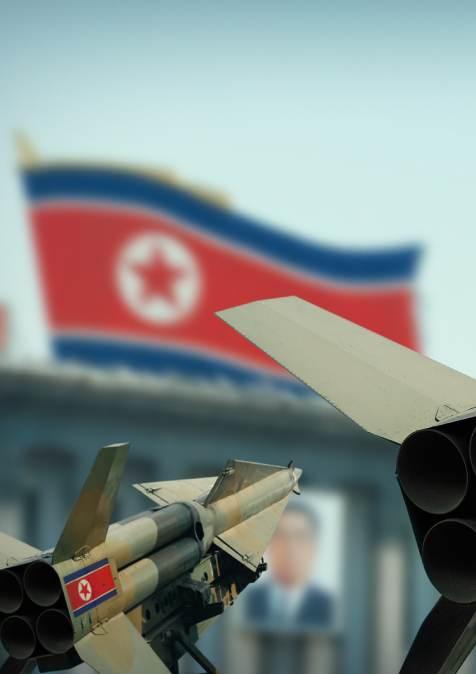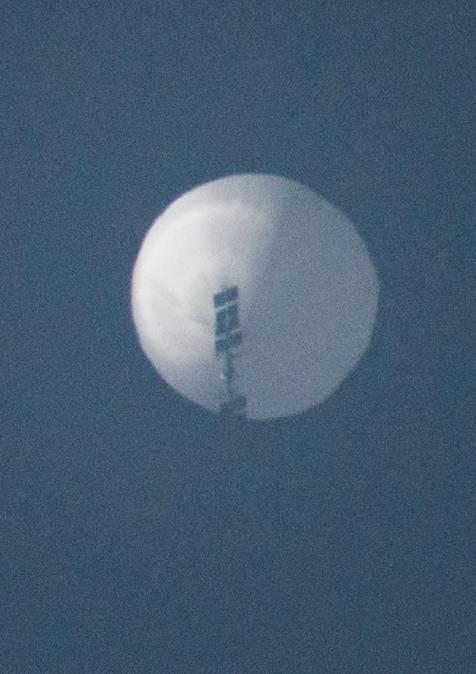Publications /
Opinion
« Anything in this very interesting world is possible, but I believe that Kim Jong –un fully realizes the great economic potential of North Korea &will do nothing to interfere or end it .He also knows that I am with him &does not want to break his promise to me. A deal will happen. » (Donald Trump, twitter, 3.42 pm, may 4, 2019)
The hat was black and already fashionable during murderous days of Adolf Hitler, Nazi-Germany’s dictator. The bizarre leader of North Korea had to wait a minute or two before he could step onto Russian terra firma for the first time in his life, seven years after he took power. The engineer of his armored train was ordered to move the green carriages 20, 30 centimeters back to align them with the red carpet---white gloved North Korea attendants’ wiped dust from any surface on the wagon the supreme chairman might touch exiting. This April 25th, 2019, Vladivostok, Russia (about 800 km train travel from Pyongyang) was a historic date in troubled times. Mr. Kim was looking for survival and allies, willing to support his isolated regime in its wrangling with Washington, himself declared he was an admirer of Donald Trump, who had walked out of the summit in Hanoi just a few months ago. Who would be better suited than Vladimir Putin, the Russian President? Russia already helps the North evade US sanctions, and it can easily serve as Pyongyang’s protector on the Security Council, just as Moscow does for Assad’ s regime. President Putin had met President Kim’s father, Kim Jong-il in 2002, also in Vladivostok. He came to town in the same train as his son. The oppressive regime did hardly change; it just added nuclear bombs to its military might.
Forever delighted to cause global trouble
President Kim’s visit to Vladivostok, a seaport located on the Far East of Russia, not far from the Kremlin’s border with China and North Korea, “may have looked like a minor fund raising mission designed to help North Korea bypass sanctions imposed by the United States and the United Nations Security Council”, wrote Song Yoon-Lee on the front page of the New York Times. That said, he added, “it was a major strategic countermove against the United States.” Mr Kim was in effect creating a shield for himself by restoring to Russia ,whose influence in the region waned after the end of the cold war, its traditional role as North Korea’ defender and a counterweight to the United States-led alliance with Japan and South Korea.”
Vladimir Putin, forever delighted to cause global trouble for the unpredictable and uncontrollable Donald Trump, from Crimea to Cuba via Venezuela and Syria, declared publicly that Mr Kim had asked him to inform the US side of his position “about questions he has regarding what ‘s happening on the Korean peninsula.” The Russian President forwarded his assessment after the meeting with Mr Kim “with about as much sincerity-and the same serpentin intend- as Kaa the python from “The jungle book”, observed columnist Bret Stephens. Ever since their failed summit at Hanoi in February of this year, have been documented not only the limitations of President Trump’s top down transactional approach to foreign policy, but also inadequate preparations (which led to unrealistic American expectations) and communications between Pyongyang and Washington. For Mr Kim, the Summit could have meant the liberations from sanctions; for the US President a step towards the total destruction of the North Korean nuclear infrastructure, and his desired nomination for the Noble Peace prize.
“A grand bargain through force of personality”
Helas, the spirit of compromise obviously was missing in Hanoi, as it was absent at the first Trump/Kim get together in Singapore in June 2018. Ever and ever again, Mr Kim resisted the total destruction of his arsenal, as the Americans demand. Trump, the Guardian noted, ”appeared to be confident he could strike a grand bargain through force of personality and the close bond he believes he has with Kim.” Didn’t Washington realize that Pyongyang would be unable and unwilling to agree to an immediate and verifiable disarmament of its nuclear weapons infrastructure including its 30 to 60 bombs? Such a move would deprive the regime of its only major tool of blackmail and deterrence. The North Korean president later complained that the Americans came with “completely unrealizable plans” and were “not really ready to sit with us face to face and solve the problem. By that sort of thinking the US will not be able to move us one iota even if they sat with us a hundred or a thousand times, and will not be able to get what it wants at all.”
“I have the feeling chairman Kim has lost the will”
Pyongyang was, supposedly, willing to dismantle all of the nuclear material production facilities in the Yongbyon area, including plutonium and uranium. (Yongbyon is a sprawling three square miles site with more than 300 different facilities located on it, all of which are dedicated to supporting the nuclear weapon program). In return for his offer, the North Korean leader asked for five of the eleven UN Security Council resolutions against North Korea to be reversed; Washington apparently wanted more--the dismantlement of covert facilities outside Yongbyon, including at least one secret uranium enrichment plant. North Korea’s deputy Foreign minister Choe Son –hui, one of the few woman in the regime holding a high level office, summed up Mr Kim‘s disappointment: “I have the feeling that Chairman Kim may have lost the will” to renegotiate with Washington. US satellites have discovered secret missile bases instead, and apparently, reprocessing activities at a nuclear site have been observed. A missile base which previously begun dismantling has been reactivated. Suddenly, early may, the North Korean military conducted a ‘strike drill” for multiple launchers and tactical guided weapon —the first rocket launch to be detected since November 2017 when North Korea fired for the last time an Intercontinental Ballistic Missile, capable of striking the United States.
Hostage to nuclear blackmail
North Korea’s state media showed its supreme leader overseeing the live firing drills. CNN broadcasted secret satellite images showing white clouds streaking across the ocean at the eastern shore, the path of the rocket. Once again, writes Korea expert Sung Yoon Lee, the government of North Korea is “gradually and very deliberately escalating tension to build up its leverage with the United States. Only this time of resetting the terms of stalled negotiations.” The decision to launch short range rockets instead of an ICBM, “also was carefully calibrated –it’s just an urgent message towards Washington that worse can follow”, test flights of Intercontinental Ballistic Missiles for example. The Kim regime has long held South Korea and Japan hostage to the threat of conventional artillery and missiles, argues Sung Yoon Lee,” now it is on the cusp of holding the United States hostage to nuclear blackmail.
Over the years, the United States has unwittingly played into North Koreas hand by displaying a persistent mix of arrogance, ignorance and intolerance. America has underestimated North Korea since the first days of the “Korean war”, more than half a century ago. Twitter –quick the US President tried to appease the restless North Koreans, suggesting a third summit, which “would be good in that we fully understand where we each stand.” The escalation over the last weeks, argues in Vox the columnist Alex Ward, shows the limits of President Trump’s personal diplomacy with President Kim, and demonstrates just how fragile the North Korean nuclear crisis really is. Kim Yong Un detailed in a recent speech to the “Supreme People’s Assembly”, “how little Trump achieved in trying love letters and nuclear strikes to entice Mr Kim to a deal.” What is clear is that if the United States sticks to its current calculations, “the ruler told his obedient assembly, it will darken the prospects for solving the problem and will be in fact very dangerous.”







